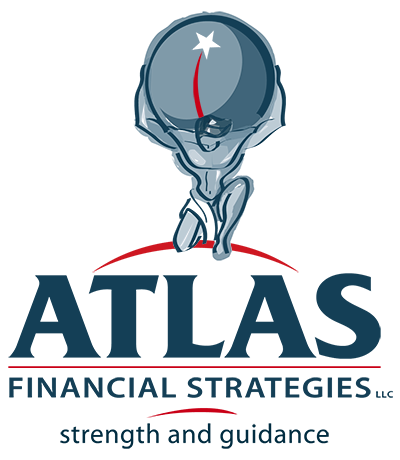- Our Process
- Video Learning Library
- Third Party Resources
- In the News
- Contact
- Investment Team
- Informational Guides
- Client Forms
- Our Firm
- I Just Sold My Business—Now What?
- How to Delay Withdrawals on Your Retirement Accounts
- Blog
- Investment Management
- Preparing Your Business for Sale: Navigating Due Diligence
- The Nautilus Group®
- Special Needs Planning
- Navigating Income Tax
- Life plan for your business®
- What You're Failing to Consider About Your Future Part I: Business Owners
- What You're Failing to Consider About Your Future Part II: Retirees
- What You're Failing to Consider About Your Future Part III: Young Professionals
- How Much Life Insurance Do I need?
- What You Should Know About Your Emergency Fund
- How Pre- and Post-Tax Contributions Affect Your Retirement
- Should You Do a Roth Conversion?
- Managing Debt: The Snowball vs. The Avalanche
- Your Extra Cash: Is It Better to Pay Off Debts or Invest More Money?
- Student Loans: What's the Best Way to Pay Them Off?
- Maximizing Your Money: Find the Most Efficient Use of Your Dollar
- Planning Post-Pandemic: Survival Tips for Business Owners
- Preparing Your Business for Sale: Are You Ready?
- Preparing Your Business for Sale: Pre-Sale Task List
- Preparing Your Business for Sale: Questions to Ask Potential Buyers
- Preparing Your Business for Sale: What to do When Things Get Serious
- When a Retirement and Legacy Arrangement (RALA) Makes Sense for You
- Know Your Numbers: The Importance of Creating Cash Management Systems Before Growth
- Tax Strategies for Business Owners
- Your Growing Business: Hiring the Right People
- Creating an Emergency Succession Plan to Protect Your Business
- Estate Planning: Equal Isn't Always Fair
- What’s the Greatest Gift You Can Leave Your Family? A Plan for Future Financial Success
Your Growing Business: Hiring the Right PeopleAs a new business owner, it's tempting to do everything yourself. Entrepreneurs often launch their startups wearing all the hats from janitor to head of IT. Business owners frequently believe that they can't afford to hire help when the opposite is really true. In most cases, you can't afford not to hire help. New hires will go through a period of lag time as they adjust to their new role, but this doesn't mean that your investment has failed. Understanding when and how to hire new people will help you streamline this process and make the best choices for your bottom line. Be Slow to Hire and Quick to FireIt's important to hire new employees at the right time after performing your due diligence to make sure they're the right fit for the job. In the early stages of your new business, you may worry about whether you can afford to hire anyone at all. As stressful as it is, if you're getting by on doing the work yourself, you may feel tempted to keep chugging along under that paradigm. However, you will undoubtedly reach a point where you're investing too much of your time in low-paying tasks. If you have activities that earn you $100 an hour, you shouldn't have to spend time on $10/hour tasks. Hire an assistant to take over these low-paying activities at the appropriate wage and you'll free up more hours for the higher-paying responsibilities. Once you're in a position like this where it makes sense to hire help, the next step is to take your time and do it properly. Don't settle for any warm body to fill the position. Take your time working through the hiring process, essentially "dating" potential candidates to thoroughly assess their suitability for the job before they "marry" into the company. This process includes performing multiple interviews, conducting personality tests, and considering several candidates so you can truly make the best choice for the job. Communicate Often and Set Clear ExpectationsSchedule frequent performance reviews to check in with new hires and make sure they're comfortable in their position and fully equipped to do the job. Consider having a performance review every 30 days for the first 90 days, so you have regular checkpoints where you can see how new employees are doing. This gives new hires an easy opportunity to ask for tools or training that they might need. It also provides employers with a chance to offer constructive feedback to help individuals succeed on the job. At the 90-day point, you should evaluate whether the employee is truly the right fit for the position. This is still early enough in the process that you can part ways with a manageable loss of time and effort. The longer an employee lingers, the more difficult it is to let them go. Stay dedicated to the mission of finding the right fit for each position in the company. Update Your Interview ProcessInterviewing potential employees is time-intensive, so you don't want to invest that effort in people who aren't solid candidates for the job. You can cut down on the number of inadequate applicants that you see by adding a few more steps to your application process. One easy way to do this is to request a 30- to 60-second value proposition video with each application. This gives you the opportunity to evaluate the individual's:
If the applicant fails to include this video, you can infer that they're not really interested in the job, that they didn't read the listing thoroughly, or that they're not skilled at following directions. This saves you the time you might have otherwise invested in seeing an unsuitable candidate. Reconsider "Experience Required"It's a common misconception that industry experience will translate to an aptitude for performing the required job. Without a thorough understanding of the applicant's past positions, it's impossible to assess whether their time in the industry was well spent. It's often more effective to assess the individual's talents, character traits, and skills yourself. A creative interview process can yield a wealth of insights into the applicant's ability to pay attention to details, listen attentively, follow directions, and think creatively. A thoughtful questionnaire can get this process started with questions such as, "Which of these sentences is correct?" This evaluates the individual's attention to detail, grammar, and ability to problem-solve. In the interview, you can evaluate the applicant's listening skills by providing the answer to future questions in your discussions. For example, you might let the individual know that they will work from 8:30 a.m. to 5 p.m. Monday through Friday and till noon on Fridays, but you're not in the office Fridays and don't take meetings. A few questions later, present a hypothetical scheduling problem with a client who's busy with a bowling league on Tuesday and Thursday and prefers Friday meetings. An applicant who listened carefully will not suggest a Friday meeting time. Follow up later with the same hypothetical client and ask what the applicant would suggest giving that client as a birthday gift. A creative thinker who was actively listening throughout the interview may suggest something to do with bowling. Though this individual may have little to no experience, their interview responses may reveal that they're far better equipped for the job than someone who has been in the industry for years. In ConclusionThoughtfully hiring employees at the right time is the best way to build a solid team with outstanding potential. Don't wait until you're desperate for help. This will leave you scrambling to hire the first warm body and may result in feeling disillusioned about your ability to find solid employees for the business. Start the hiring process early, so you have plenty of time to evaluate each individual. Then, assign those lower-yield tasks to others so you're free for high-paying activities. This article is for informational purposes only. Hiring practices should reflect each business’ unique situation. For guidance regarding your specific situation, please reach out to your own business consultant or attorney and confirm compliance with state and federal laws employment laws. |
 Quick Links
Quick Links
